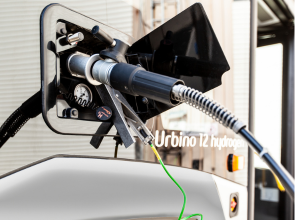Wrightbus and e-Motif receive millions in funding from the UK government
The two UK hydrogen-powered bus projects are awarded £ 22.5 to develop the technology and decarbonise public transport.

The UK government awarded £11.2 million (US$ 15.5 million ) to Wrightbus in Ballymena, Northern Ireland, to develop hydrogen fuel cell technology. Wrightbus is working on developing lower-cost hydrogen-powered fuel cell electric vehicle single and double-deck buses.
Executive Chairman of Wrightbus, Jo Bamford, said, “The funding will allow us to realise our ambitions of creating a centre of excellence for zero-emission technology in Ballymena.” He added that the project would protect about 1,000 skilled jobs and lead to over 3,000 additional jobs in the coming ten years.
The government also awarded £11.3 million (US$ 15.6 million ) to the e-Motif (e-axle with MOT or Inverter and Flywheel) project, which is working on developing energy-saving technology from motorsport for use in cars and vans in Warwickshire. The e-Motif project, which Shield Manufacturing Technologies lead, is scalable and cost-effective and will be expanded to three new production centres in the UK.
Managing Director of the Shield Group, Chris Shield, said, “Shield Manufacturing Technologies is delighted to be working with APC and our partners to accelerate the development and production readiness of cutting-edge engineered technologies.”
The third project was awarded £31.9 million (US$ 44 million ) for developing electric propulsion systems for heavy goods vehicles in Cwmbran, Wales.
The three projects, which amounts to £54 million (US$ 74.5 million) in total, will support the recent launch of the government’s national Bus Back Better strategy and the Prime Minister’s 10 Point Plan for a Green Industrial Revolution. These three projects are claimed to protect around 10,000 UK jobs and save 45 million tonnes of CO₂.
Advanced Propulsion Centre (APC), which supports low carbon emission technologies for vehicles, coordinates the funding. It was founded in 2013 and so far funded 150 low-carbon projects involving 375 organisations.
